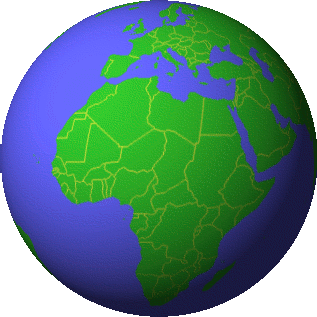"Jesus Christ is the same yesterday and today and for ever."
(Hebrews 13:8)
The children of God (John 1:12), at the present time, do not claim to be arbiters of society, judges of the followers of other orientations. Be it philosophical or religious. Far from it. However, it is true that societies are in a constant process of transformation, and Brazilian society is no different. According to the Christian calendar whose landmark is the birth of Jesus Christ, the most used in the world (dated from the year 532), Brazil in the year of discovery (1500) is very different from Brazil today (2013). The country evolved from an exploration colony to today's contemporary Brazil. How many transformations! How many clashes (internal and external) were not fought until reaching the independent and sovereign country of today! How many of these clashes did not turn into conflicts or wars? Today's independent and sovereign Brazil is guided by the 1988 Magna Carta (Citizen Constitution), containing the entrenched clauses, provisions that cannot be changed, such as individual rights and guarantees, federal form of the State, separation between powers (independent and harmonious) and the direct and secret vote.
Two aspects are highlighted in this time scale. The first is the birth of Jesus Christ, which according to our calendar corresponds to year 1 (one) of the Christian era. In this chronology, 513 years of Brazil are already gone (1500-2013), or 1500 years that preceded its discovery and so many other orientations, philosophical or religious, that influence the country to this day. In this time scale, it is observed that every time you date (month/day/year) and sign a document (law, decree, power of attorney, check...), you are agreeing with the birth of Jesus Christ, this agreement propagated around the world.
The second aspect highlighted is the reduction of temporal distances, accelerating the process of transformation of society, and considering globalization, technologies and advances in communications as the determining factors for these rapid changes. Today, the computer and the internet are the craze of the borderless world of the Contemporary Age, which began with the French Revolution (1789). Brazil, in this climb, is still a child. His discovery is inserted in the context of the advance of Mercantilism (period of the Modern Age), which goes from the taking of Constantinople (1453) to the French Revolution (1789). Mercantilism, as the name suggests, corresponds to the set of economic practices of accumulation of wealth, production and circulation of goods, which prevailed in European countries between the middle of the sec. XV to sec. XVIII. The advance of Mercantilism needed new markets and new regions of raw materials that would buy manufactured products produced in the metropolises. In this context, Brazil was discovered, with the role of meeting the needs of European Mercantilism, resulting in the country's colonial exploitation. Therefore, the main function of colonial Brazil was subservient to the interests of Mercantilism.
At the time of the discovery of Brazil, various philosophical and religious orientations hovered around the world, a legacy of earlier periods in human history (since the creation of man). Heritages from the period of Antiquity are cited (from the discovery of writing until the fall of the Western Roman Empire (476)), including the period of Mesopotamia, Egyptian peoples, Hebrews, Persians, Greeks and Romans. Heritages from the Middle Ages period (from the fall of the Western Roman Empire to the taking of Constantinople (1453)), including the period of the Byzantine Empire, Islamic World, Feudalism and Medieval Culture. Heritages from the period of the Modern Age (from the taking of Constantinople to the French Revolution (1789)), including the period of the Renaissance, Religious Reform, Conquest of America, Mercantilism and the Colonial System. How many orientations influencing societies during human history! The first step towards leaving a positive legacy for future societies is the peaceful coexistence (harmonic and independent) among the various groups in Brazilian society. All, without exception, have free will and the right to organize themselves in defense of their positions. Without the extremisms that only contribute to a society in permanent conflict, contrary to the desired peace.
From this point of view, the question is: How should the children of God (John 1:12) take a stand in the face of the various orientations of society?
Well, going back to the entrenched clauses of the Brazilian constitution, provisions that cannot be changed, the children of God (John 1:12) must have the same position that Jesus had, before the confession of the apostle Peter. (Matthew 16:18)
"And I tell you that you are Peter, and on this rock I will build my church,
and the gates of hell cannot overcome it. ”
(Matthew 16:18)
Jesus commissioned us to make disciples of all nations, with the necessary means: The “IDE” of Jesus.
"But you will receive power when the Holy Spirit descends on you, and you will be my witnesses in Jerusalem, in all Judea and Samaria, to the ends of the earth."
(Acts 1:8)
The Word of God is Christian guidance, the practice of which requires a position of authority at all times. Thus, the Holy Bible is the rock clause of Christianity: Yesterday, today and forever. Immutable.
We are the righteousness of God in Christ.
Manoel Lúcio da Silva Neto is a master in Production Engineering (Media and Knowledge), author of the book, Christology at your Reach, 2010.













